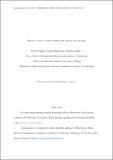Bayesian or biased? Analytic thinking and political belief updating
Author(s)
Tappin, Ben M; Pennycook, Gordon; Rand, David G
DownloadAccepted version (1.270Mb)
Publisher with Creative Commons License
Publisher with Creative Commons License
Creative Commons Attribution
Terms of use
Metadata
Show full item recordAbstract
© 2020 Elsevier B.V. A surprising finding from U.S. opinion surveys is that political disagreements tend to be greatest among the most cognitively sophisticated opposing partisans. Recent experiments suggest a hypothesis that could explain this pattern: cognitive sophistication magnifies politically biased processing of new information. However, the designs of these experiments tend to contain several limitations that complicate their support for this hypothesis. In particular, they tend to (i) focus on people's worldviews and political identities, at the expense of their other, more specific prior beliefs, (ii) lack direct comparison with a politically unbiased benchmark, and (iii) focus on people's judgments of new information, rather than on their posterior beliefs following exposure to the information. We report two studies designed to address these limitations. In our design, U.S. subjects received noisy but informative signals about the truth or falsity of partisan political questions, and we measured their prior and posterior beliefs, and cognitive sophistication, operationalized as analytic thinking inferred via performance on the Cognitive Reflection Test. We compared subjects' posterior beliefs to an unbiased Bayesian benchmark. We found little evidence that analytic thinking magnified politically biased deviations from the benchmark. In contrast, we found consistent evidence that greater analytic thinking was associated with posterior beliefs closer to the benchmark. Together, these results are inconsistent with the hypothesis that cognitive sophistication magnifies politically biased processing. We discuss differences between our design and prior work that can inform future tests of this hypothesis.
Date issued
2020Department
Sloan School of Management; Massachusetts Institute of Technology. Department of Brain and Cognitive SciencesJournal
Cognition
Publisher
Elsevier BV